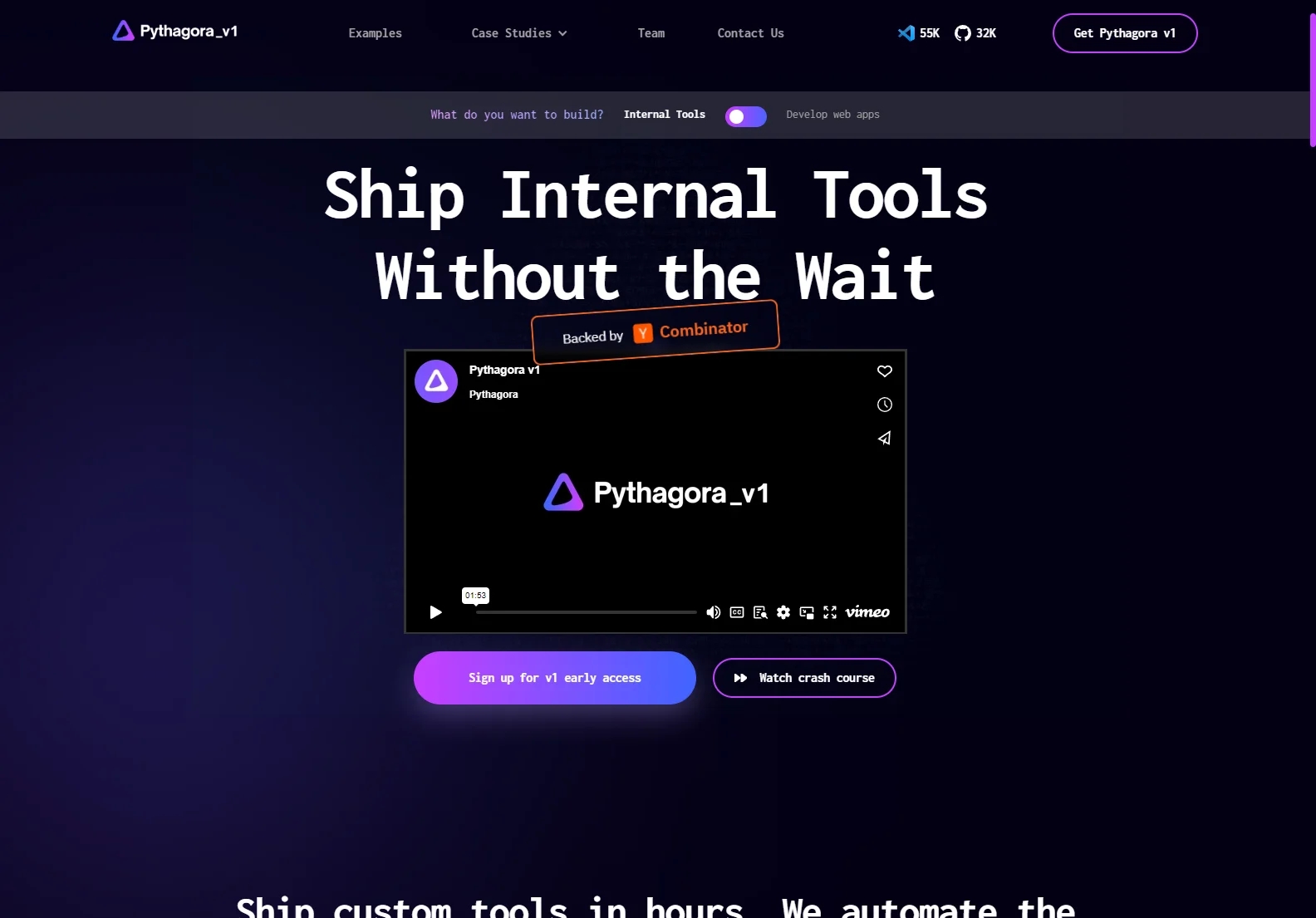Pythagora AI: Revolutionizing Internal Tool Development
Pythagora AI is a groundbreaking VS Code extension designed to dramatically accelerate the creation of internal tools. Leveraging the power of cutting-edge LLMs like GPT-4, Claude, and others, Pythagora automates tedious coding tasks, allowing developers to focus on the core functionality and innovation of their projects. This article delves into Pythagora's capabilities, showcasing its efficiency and the impact it has on development teams.
Key Features and Capabilities
Pythagora streamlines the entire development lifecycle, from initial concept to deployment. Its key features include:
- Code Generation: Pythagora generates clean, modular, and production-ready code based on natural language descriptions. This significantly reduces development time and effort.
- Code Debugging and Error Correction: The tool actively scans for errors, suggests fixes, and even implements them automatically, minimizing debugging time.
- Version Control Integration: Seamless integration with Git ensures efficient version control and collaboration.
- Cloud Deployment: Deploy and host your application online with a single click, simplifying the deployment process.
- Interactive Feedback Loop: Pythagora engages in a dynamic dialogue with the developer, seeking clarification and feedback when needed, ensuring the final product aligns perfectly with the developer's vision.
- Support for External Documentation: Easily integrate your existing documentation into Pythagora for seamless workflow.
Real-World Examples: Case Studies
Several teams have already experienced the benefits of Pythagora:
- LLM Prompt Evaluation Tool: This tool, built in just 8 hours, allows parallel evaluation of prompts across multiple LLMs, significantly improving the efficiency of LLM development and testing.
- Custom User Management Tool: Developed in 7 hours, this tool streamlines user data management for Pythagora's customer support team, consolidating data from various sources into a single, user-friendly interface.
- LENS (Database Navigation Tool): This internal tool, created in 12 hours, simplifies database navigation, accelerating debugging and troubleshooting for Pythagora's developers.
These examples demonstrate Pythagora's ability to build complex applications quickly and efficiently.
How Pythagora Reduces Development Time
Pythagora significantly reduces development time by automating many repetitive tasks. Most applications are built in under 8 hours, with more complex projects typically completed within a few days. This contrasts sharply with traditional development methods, where similar projects might take weeks or even months.
What Pythagora Can Build
Pythagora is capable of building applications with over 10,000 lines of code. While it excels at creating internal tools, it's also suitable for building production-ready applications ranging from 3,000 to 5,000 lines of code. Its capabilities are constantly expanding.
Getting Started with Pythagora
While technical skills are required (familiarity with terminals, debugging, web development basics), Pythagora simplifies the process significantly. Its open-source core philosophy fosters community growth and innovation.
Conclusion
Pythagora AI is transforming internal tool development. By automating tedious tasks and providing an intuitive interface, it empowers developers to build high-quality applications faster and more efficiently. Its focus on production-ready code and seamless integration with existing workflows makes it a valuable asset for any development team.

